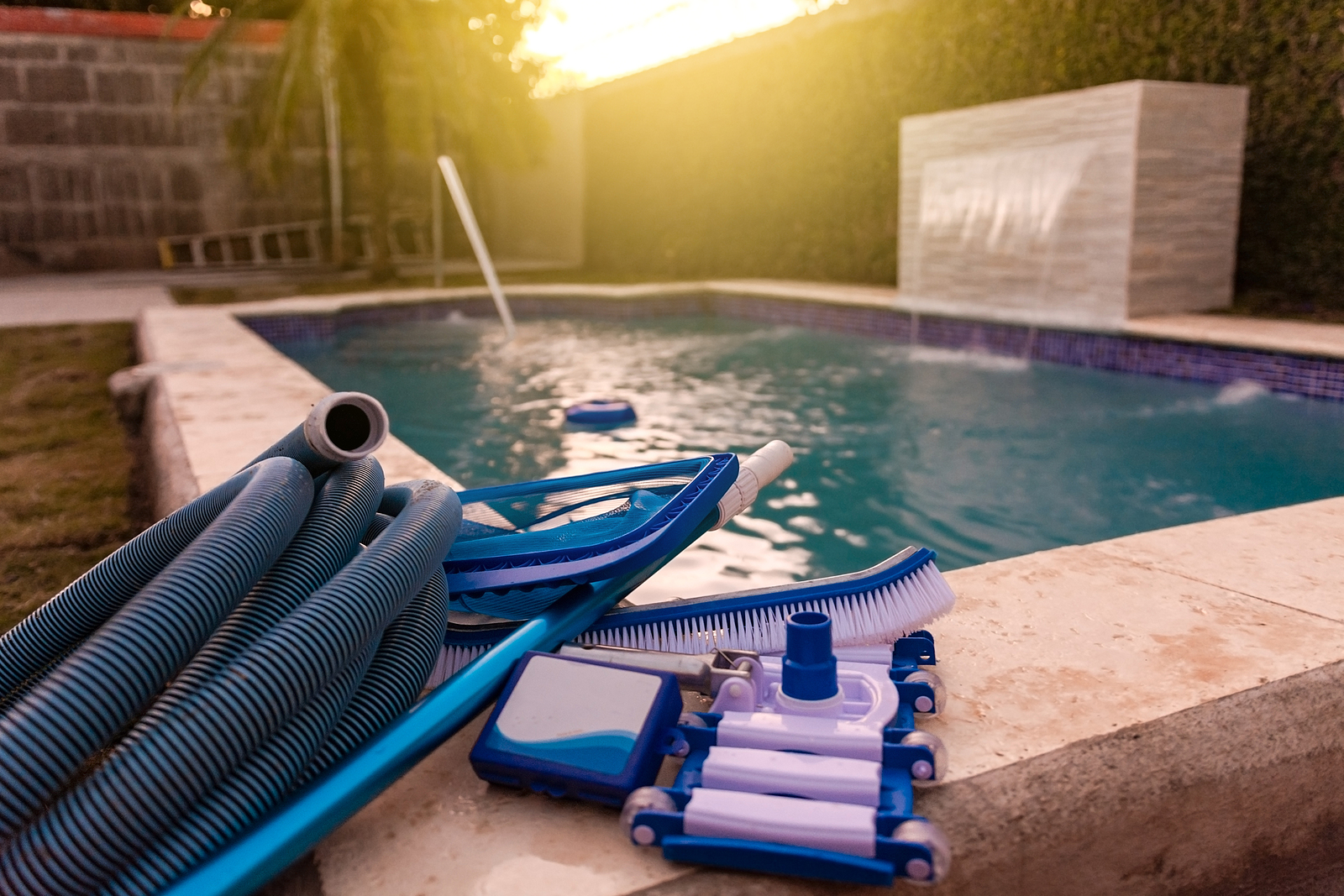Some homebuyers wouldn’t think of buying a home that didn’t offer a swimming pool. You’ll typically find these folks in the warmer parts of the country. Then, there are those who didn’t have a pool on their wish list but fell in love with a home that offers one.
Whichever group you belong to, there are a few things to consider about swimming pools and the homes that wrap around them.
Get as much information on the pool as possible
Boat owners are familiar with the old saying that “A boat is a hole in the water you throw money into.”
The same can be said about a pool, which is a hole in the ground you throw money into.
Naturally, you’ll want to have the pool inspected and find out:
- How old it is as well as the age of the equipment
- The size
- How often it’s used
- The history of any maintenance and/or repair issues
- Does the pool meet local and state safety requirements?
The answers to most of these questions may help you figure out how much it will cost to maintain the pool.
Maintenance of a pool isn’t quick or cheap
The goal of pool maintenance isn’t just to make it Instagram-ready. You’ll need to keep it sanitized, free of algae, and pH balanced.
If you think you’d like to save money by doing it yourself, you may, but don’t forget the time you’ll spend on the job.
Stacey Freed at AARP.org crunched some numbers and found that if you DIY your pool’s maintenance, plan on spending “… about five to 10 hours of your spare time,” each week on it.

Nicole Shein at BobVila.com lists the bare minimum when it comes to pool maintenance tasks:
- Cleaning out debris, such as hair, garden litter, bugs, etc. This is known as “skimming” the pool.
- Clean out the pool’s strainer basket. This task helps “… protect the pump from any damaging materials settling in the pool and its plumbing,” claim the experts at Evoqua Water Technologies.
- Scrub down the pool’s floor and walls to help prevent algae buildup.
- Vacuum the pool. The pool filter doesn’t catch everything, unfortunately.
- Refill the pool if needed.
- Test the water to determine if it needs additional chemicals.
“It’s a good idea to skim, check the baskets, and make sure the filter is functioning as it should on a daily basis,” Shein suggests.
“Vacuuming and tending to the pool water’s chemical makeup is usually a weekly chore,” she concludes.
Then, there is the cost of the equipment and the chemicals you’ll need to purchase to do it yourself.
You can always hire a professional to maintain the pool. The average monthly cost, nationwide, for this service ranges “… between $110 and $351 per year, with an average cost of $229.” (HomeAdvisor.com)
Take all of this into account when considering a home with a pool.

Maintenance isn’t the only way a pool grabs your cash
Before you sign on the dotted line, contact your homeowner’s insurance agent (you’ve chosen one, right?).
You’ll want to get this insurance nailed down so there are no financial surprises when it comes time to close escrow. But you’ll also want to know how much coverage for the pool will run you.
“… homeowners insurance with a pool is generally priced a bit higher than the typical cost of home insurance,” suggests Christy Bieber, insurance expert for Fool.com.
Shein suggests that some insurers consider an in-ground pool as part of the home, or, it could be classified as an “other structure.”
“Liability” is the name of the insurance game when it comes to swimming pools. Perform your due diligence by having your real estate agent obtain the answers to the questions we suggested above, in the third paragraph.
The most important of these questions is the one about meeting safety requirements. These might include a fence around the pool with a secured gate and/or an alarm.
Does a pool add value to the home?
Good for you to consider a home’s future value before buying it.
When determining whether or not a pool adds value to a home, consider the climate in the region. For Minneapolis or Fargo residents, for instance, a pool isn’t as high on the list of wanted amenities as it is for a buyer in Las Vegas or Phoenix, where it’s likely the pool will get used year-round.
“But if you live in a typical community where some houses have pools but most do not, having a pool built will probably not have any impact on the value of your home,” Robert Taylor, a real estate investor in Sacramento, California, tells Bankrate.com.
If you have additional questions, please let us know. Advice is always free and helping you find the right house for you and your budget is always our goal.

